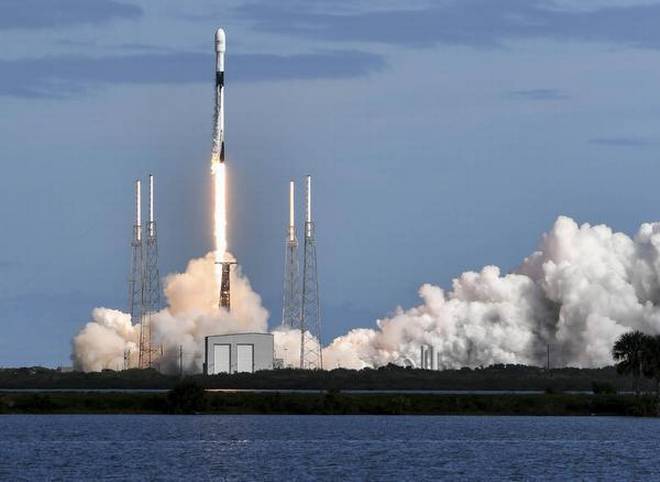Elon Musk’s SpaceX has launched it second batch of 60 Starlink satellites, taking another step for the company’s vision of creating broadband internet service beamed down from space .
Elon Musk’s Space Exploration Technologies (SpaceX) has launched it second batch of 60 Starlink satellites, taking another step for the company’s vision of creating a broadband internet service beamed down from space. SpaceX’s Falcon 9 rockets left 9:56 am local time from Cape Canaveral Air Force Station in Florida, and the satellites deployed a little over an hour after the launch.
Previously, SpaceX President and chief operating officer Gwynne Shotwell was quoted as saying that the space-based broadband internet service will be live by mid-2020. It was also revealed that the Starlink system is already being tested by the US Air Force. Back in October, SpaceX founder Elon Musk had put out two tweets indicating that he was posting these from the StarLink broadband service.
“Sending this tweet through space via Starlink satellite,” he wrote first, followed by “Whoa, it worked!!” SpaceX plans to deploy a total of 12,000 low-orbit satellites in three different orbital shells, which will form a Starlink constellation. These will orbit Earth at 500 km to 1300 kms.
SpaceX put its first batch of 60 satellites into the low Earth orbit in May 2019. SpaceX needs six to eight more launches for Starlink to ensure continuous service in upper and lower latitude bands, is what the company president Shotwell had revealed. “We need 24 launches to get global coverage. Every launch after that gives you more capacity,” she said earlier. The company plans to launch the internet service in US and Canada first.
While satellites are one part of the Starlink system, the user terminals where they will receive the internet connection is yet to be finished. SpaceX is yet to finish the design and engineering for this receiver, which will cost approximately $200 and be small enough to fit in homes, even on roof of cars, ships, etc in order to connect to the internet.
SpaceX has claimed that Starlink will provide 1GBps speeds and latency
of around 25 and 35ms, which would put it in the league of wired
broadband services that currently are available across the world.
But it looks like SpaceX will also have some new competition in the
space. Rival Jeff Bezos’s Amazon.com Inc has also has a similar effort
called Project Kuiper, and SoftBank Group Corp-backed OneWeb aims to
have a network available by 2021.













![Hotstar Premium Cookies 2019 [*100% Working & Daily Updated*] Hotstar Premium Cookies 2019 [*100% Working & Daily Updated*]](https://tahav.com/wp-content/uploads/2019/11/Hotstar-Premium-Cookies-Free-100x70.jpg)



